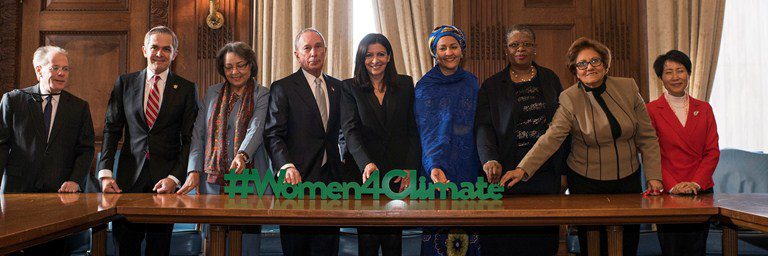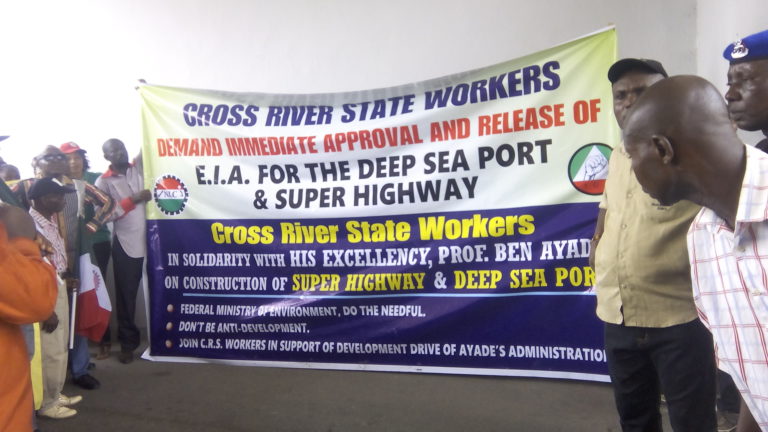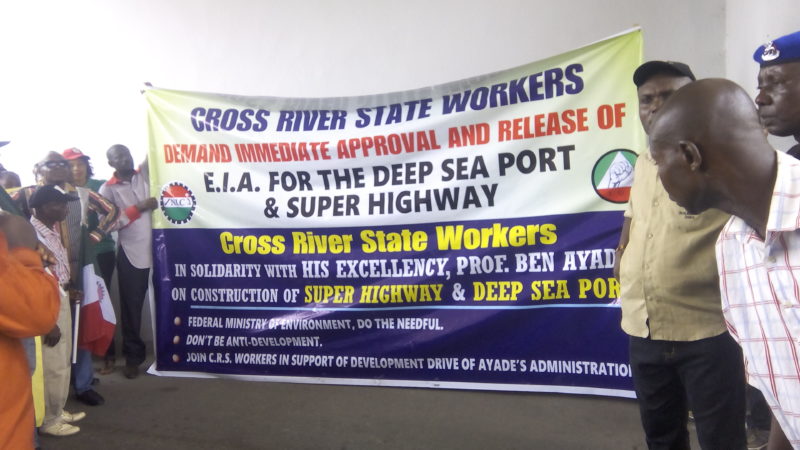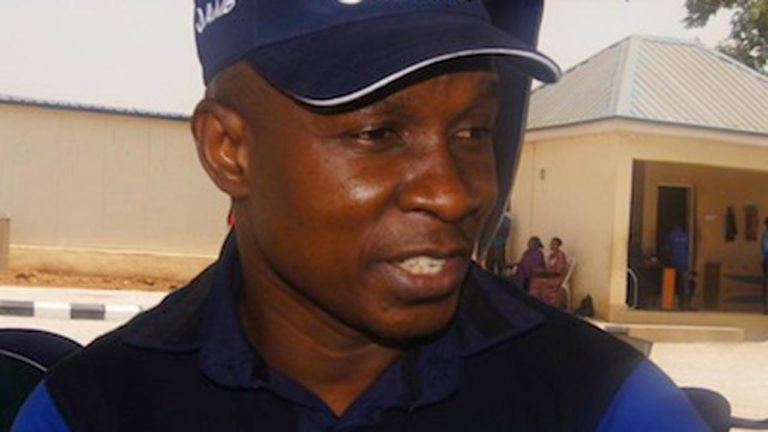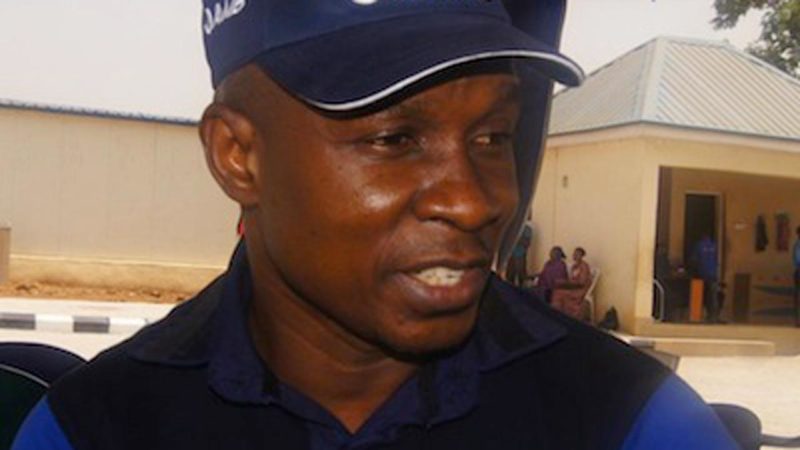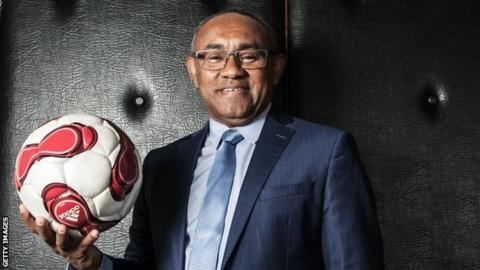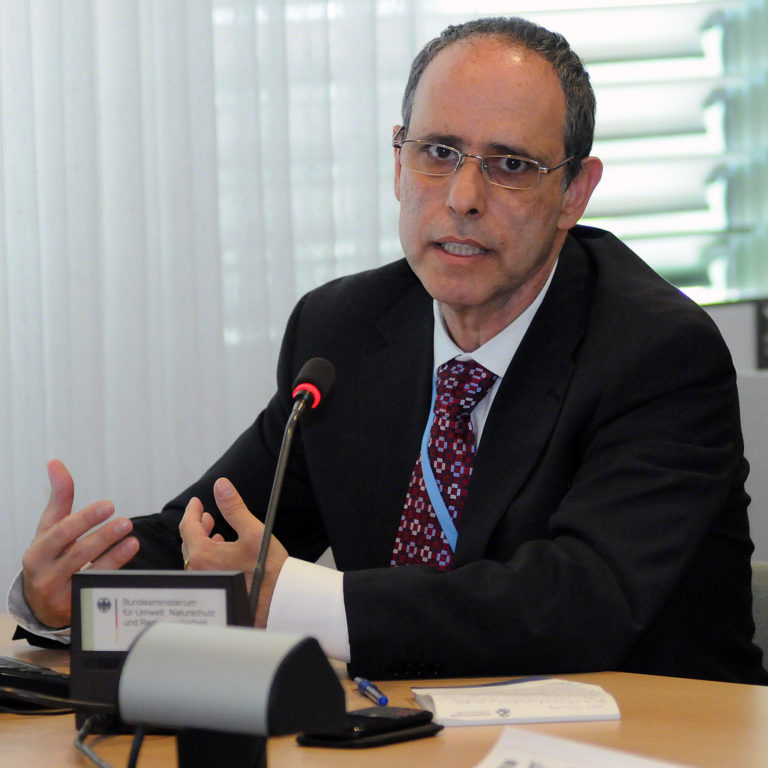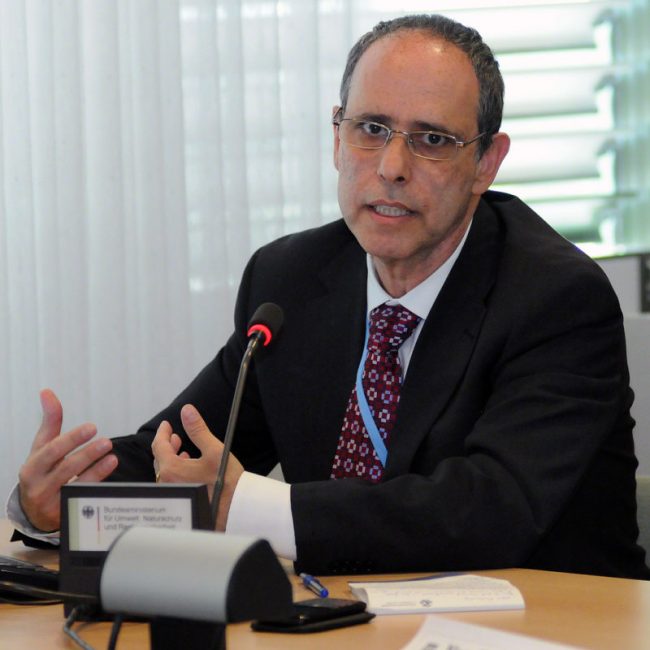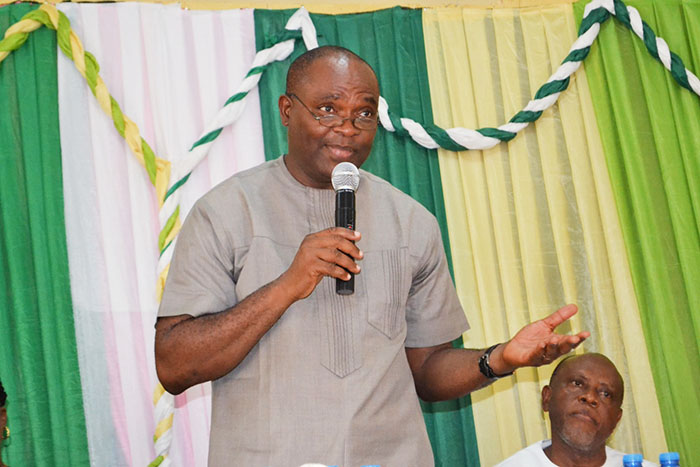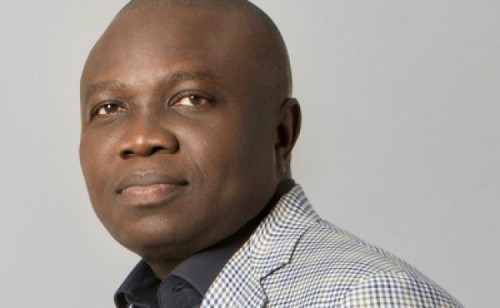Women mayors from some of the world’s greatest cities and women business leaders have committed to use their growing global power to tackle climate change and deliver on the ambition of the Paris Agreement.

Meeting on Wednesday, March 15, 2017 at the inaugural Women4Climate conference in New York City, the mayors of Paris, Mexico City, Durban, Cape Town and Caracas, pledged to support and mobilise the next generation of women leaders, fighting climate change.
Hosted by C40 Chair and Mayor of Paris, Anne Hidalgo at Columbia University, the first-of-its-kind event brought together women mayors from many of the world’s largest and most influential cities. The 15 women mayors that lead cities in the C40 network represent 100 million urban citizens and over $4 trillion dollars in GDP. These women leaders were joined by CEO’s and innovative change-makers who represent the next generation of women leaders acting to reduce carbon emissions and protect the world from the impacts of climate change.
Their call was echoed by Michael R. Bloomberg, U.N. Secretary General’s Special Envoy for Cities and Climate Change, and Miguel Ángel Mancera, Mayor of Mexico City.
The event officially launched the C40 Women4Climate initiative. A major new effort by the C40 Cities network that will deliver the following impact:
Empower & Inspire
Contribute to the emergence of the next generation of climate leaders by sharing knowledge and experiences through a global mentorship program dedicated to women in C40 cities. The young women involved will be guided by C40 mayors and committed leaders from the business sector, international organisations and civil society. The programme will represent a turning point in the lives of the women involved, providing them with the tools they need to develop themselves and their activities.
Inform & Raise Awareness
Highlight the key role women play in the development and championing of climate policies. C40 will undertake research to fill the knowledge gap about the interplay between gender, cities and climate. The results will be instrumental in helping cities deliver inclusive climate action plans.
Drive Action
Support future climate leaders by launching an annual challenge dedicated to awarding women researchers and entrepreneurs on the best innovations in climate and sustainability.
Influence
Achieve visibility and thought leadership to motivate and inspire women around the world to become leaders in business, government and climate-focused organisations. We will hold ambitious events to showcase the thought leadership achievements of the Women4Climate Initiative, inform the wider conversation around women and climate and create a new vocation among future leaders.
“As women, we know all too well that the powerful often seek to silence our voices when we speak out to protect the most vulnerable in our communities,” said C40 Chair and Mayor of Paris Anne Hidalgo. “We are here today to show that we refuse to be silenced. All around the world, in city halls, corporate boardrooms and on the streets of our cities women are demanding action to protect the planet from the threat of climate change.”
Across the globe women are leading climate action. Former UNFCCC Executive Secretary Christiana Figueres, French Minister of Environment Ségolène Royal and Ambassador of France for Climate Change Negotiations Laurence Tubiana were the architects of the historic Paris Agreement on Climate Change. Women held six of the most influential positions at the COP22 global climate talks in Morocco during 2016. Women mayors have been instrumental to implementing the Paris Agreement and their power is growing. The number of C40 cities with women mayors has increased from four to fifteen since 2014.
“Women leaders were instrumental in securing the Paris Climate Agreement and women mayors of C40 cities are stepping up to help ensure their nations reach their goals,” said Michael R. Bloomberg, C40 President of the Board and U.N. Secretary General’s Special Envoy for Cities and Climate Change. “Women leaders at companies and non-profits are also speeding our progress, and I’m glad to say that includes the CEO of Bloomberg Philanthropies, Patti Harris, and the head of our environment programme, Antha Williams.”
“Every week I meet inspiring young women from business, NGOs and politics, who are determined to change the world, said Mayor of Washington D.C., Muriel Bowser. “If our cities and climate are in their hands then It makes me very confident for the future.”
L’Oréal has already communicated their strong will to engage and support C40 in the long-term development of the Women4Climate Initiative. “At L’Oréal, we consider it strategic to engage with C40 women mayors to empower the next generation of women leaders in fighting climate change,” said Alexandra Palt, L’Oréal Chief Sustainability Officer. “This commitment reflects two of L’Oréal’s major orientations: gender equality and climate protection. Women will play a critical role in tackling climate change. It is our responsibility to empower and support them.”
“Women are more likely to work in industries that will be affected by a changing climate, such as agriculture,” said Mayor of Durban, Zandile Gumede. “That is why women need to help lead this fight, to ensure that the environment and the future generations are protected.”
“Mexico City is one of the first cities to incorporate gender equity into its Climate Action Program, we have identified 78 actions to reduce the vulnerability of women to climate change in the city,” said the Mayor of Mexico City Miguel Ángel Mancera. “The official launch of the Women4Climate initiative in Mexico City during the C40 Mayors’ Summit was inspiring and a commitment we take with great responsibility.”

